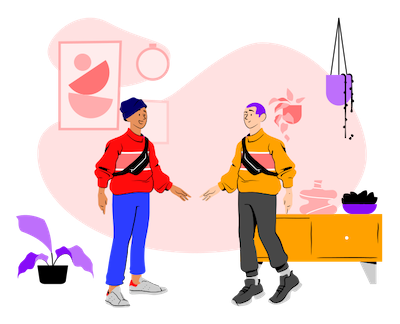|  | | | Bonjour, chers étudiants! Get ready to learn new French words such as 'fonds', 'table', 'quoi de neuf', 'apporter', 'salutations', and enjoy a hilarious French joke 'M. et Mme GINA ont un fils, comment s'appelle-t-il ? Laurent GINA'. |
| |
| |
|
|
fonds The word 'fonds' is used similarly to 'fund' in English. It can be used to refer to a sum of money saved or collected for a particular purpose or the place to which money is directed. 'Fonds' in French is often used in financial and banking contexts, similarly to how 'fund' is used in English. Here's how to use it: Les fonds de la bibliothèque sont très anciens. Nous cherchons de nouvelles sources de fonds pour ce projet. Il finance ses projets grâce à un fonds spécial.
| |
|
table The word 'table' in French is also 'table', pronounced slightly differently. It is used in the same context as in English, referring to a piece of furniture with a flat top and one or more legs, providing a level surface on which objects may be placed. It's used in everyday language and is a commonly known noun. Here's how to use it: La table est dans la cuisine. Je vais mettre le dîner sur la table. La table de multiplication est difficile à mémoriser.
| |
|
quoi de neuf In French, 'quoi de neuf' is a casual greeting typically used among friends. It translates literally to 'What's new?' in English, but is used more often in the same ways as English speakers would use 'What's up?'. This phrase is informal so it should not be used in formal or professional situations. It can also be a way of asking someone 'What's happening?' or 'What's going on?' Here's how to use it: Quoi de neuf dans ta vie en ce moment ? Quoi de neuf dans ton travail ? Quoi de neuf dans ta carrière ?
| |
|
apporter The French word 'apporter' is equivalent to the English word 'bring'. It is commonly used in many different contexts, much like its English counterpart. For instance, in a sentence 'Je vais apporter le gâteau à la fête', it translates to 'I will bring the cake to the party'. It is important to note that 'apporter' is used when referring to bringing an object or item. Here's how to use it: Pouvez-vous apporter votre livre à la classe demain? Apporte-moi la télécommande, s'il te plaît. Je vais apporter ma guitare à la fête.
| |
|
salutations The French word 'salutations' is used in formal situations or in written communication. It is not very commonly used in casual conversation. Instead, to say 'hello' in French, you would typically say 'bonjour' or 'salut'. Here's how to use it: Salutations Bonjour et salutations Au revoir et salutations
| |
|
😆😆😆 M. et Mme GINA ont un fils, comment s'appelle-t-il ? Laurent GINA. | |
|
| You received this email because you signed up at LangBites.co. Click here to unsubscribe. |
| |
|
|
|

